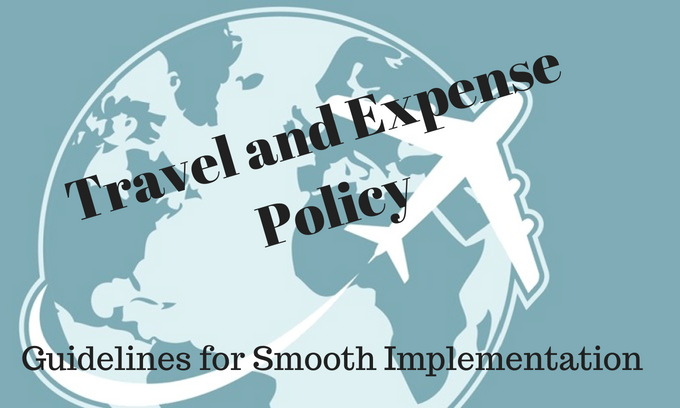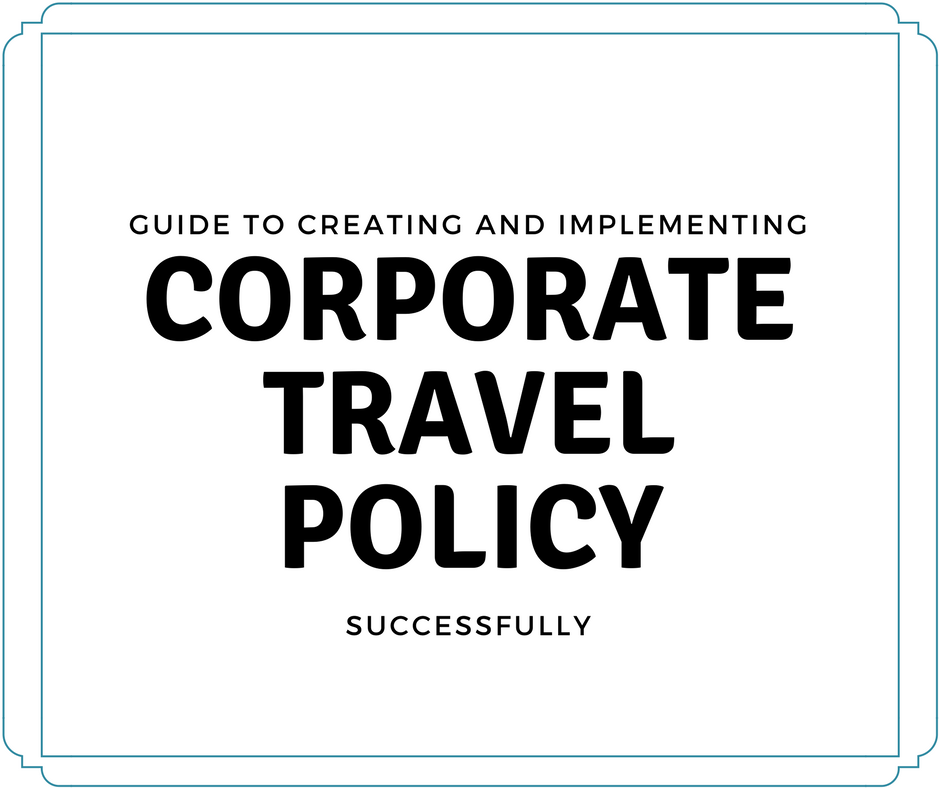4 Tips for Improving your Corporate Travel Program
 It’s not uncommon for businesses to struggle with corporate travel program compliance. However, business travel management companies know corporate travel program policies are essential, safeguarding your employees and helping you maintain your bottom line. What if with a few tweaks, you could improve your travel program and compliance? Skeptical? It may be easier than you think.
It’s not uncommon for businesses to struggle with corporate travel program compliance. However, business travel management companies know corporate travel program policies are essential, safeguarding your employees and helping you maintain your bottom line. What if with a few tweaks, you could improve your travel program and compliance? Skeptical? It may be easier than you think.
4 Tips for Improving Your Corporate Travel Program (Your Employees Will Appreciate)
- Make Travel Policies Clear
The two main reasons for a lack of adherence to travel policy guidelines are a lack of clarity and a lack of communication. When was the last time you communicated with your employees on company travel policies? Employee education is crucial, driving up compliance. Regular travelers should also be refreshed. Oftentimes, even management staff do not know travel policy well enough to clarify and enforce it.To boost compliance, make policies cut and dry, in plain English. Include definitions of key terms such as ancillary fees and restricted airfares to prevent confusion. Note the penalties for non-compliance. Make these policies easily accessible via the company intranet or through your business travel planner. Update these policies, and your employees, often for maximum benefit. - Value Employee Satisfaction Alongside Savings
Improving the booking and travel experience for employees is an easy way to boost employee compliance with travel policies. These may seem counterintuitive, but it is not. Improved employee satisfaction doesn’t always equate with higher expenses. Better traveler services boost compliance by changing employee behavior.Inviting feedback from traveling employees is a great way to drive change in this area. Free survey tools from your corporate travel agency can help you gain essential data. For instance, would employees happily choose a 3-star lodging over 4-star if it meant additional funds for dining? Such decisions simply shift costs, rather than driving them up. - Gamify to Reach Compliance Goals
Gamification can be an effective way to boost compliance. Implementing strategies such as leader boards and online badges for ranking employees in corporate travel policy compliance are an inexpensive and fun way to encourage employees to adhere to guidelines. To prevent yours from falling short, however, you’ll need to offer more than bragging rights. These aren’t enough to incentivize employees. Instead, consider financial incentives for savings, like gifting top-performing employees a percentage of savings earned. - Beef Up Risk Management and Duty of Care Procedures
Consider adding additional levels of safety and security to your duty of care and risk management programs. It is your legal and moral responsibility to protect employees from harm. Cover potential risks to travelers prior to each trip, devising a crisis management plan in case of emergency. Track employees at all times. These steps are especially essential for those employees visiting areas under travel alerts. Such procedures boost safety alongside travel policy compliance.
Don’t settle for the same old, same old. Change the name of the game with the help of GTI Travel today.

 Corporate travel can be a complex and expensive process, sometimes even more so for small businesses. Companies that have
Corporate travel can be a complex and expensive process, sometimes even more so for small businesses. Companies that have  Travel risk management is a proactive, comprehensive approach to protecting your employees and company from travel risks. It’s not just about how effectively your organization responds to a crisis, but how well you can actually prevent a crisis from happening. In today’s ever-changing world, more and more businesses are making corporate traveler safety and security a top priority, and
Travel risk management is a proactive, comprehensive approach to protecting your employees and company from travel risks. It’s not just about how effectively your organization responds to a crisis, but how well you can actually prevent a crisis from happening. In today’s ever-changing world, more and more businesses are making corporate traveler safety and security a top priority, and  Analyze Current Travel Policies and Data
Analyze Current Travel Policies and Data